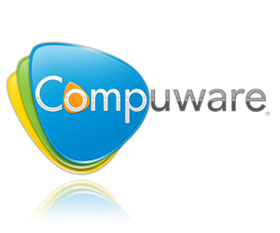SMS direct marketing contravenes CPA
 The Consumer Protection Act (CPA) allows sending unsolicited direct marketing communications (which is commonly seen as spam by many consumers) under certain conditions.
The Consumer Protection Act (CPA) allows sending unsolicited direct marketing communications (which is commonly seen as spam by many consumers) under certain conditions.
However, if one looks more closely, it turns out that it is simply not possible to comply with these conditions with SMS communications.
Before sending out direct marketing messages to a database of contacts, a company would have to ensure the following in terms of the CPA:
- Check if recipients have already opted-out from direct marketing messages from the company sending the messages.
- Check if recipients have opted-out by adding their details to the CPA “do not contact registry”.
- Provide the mechanism to afford each recipient the opportunity to opt-out at no cost from these direct marketing messages.
While it is possible to comply with one and two, it is not possible to comply with three - except on the Vodacom network, where a reverse billing channel is provided. Normally, sending an SMS using the reply path to the SMS received would cost the consumer between 50c and 80c, depending on the network. If the sender allows opt-out by calling a toll free number, the call will not be toll free if dialled from a mobile, as toll free numbers only apply to landlines. If the sender allows opt-out via email, four out of five mobile users will be unable to use this, as not everyone has an active email address or access to communicate through email.
Until free opt-out becomes possible, it is technically illegal to send both unsolicited direct marketing as well as solicited direct marketing via SMS. It should be noted that the CPA does not distinguish between unsolicited and solicited direct marketing.
There are two possible solutions:
- Changing the applicable section of the CPA to ensure the free opt-out requirement only applies to unsolicited direct marketing. This will legitimise solicited (opt-in) direct marketing utilising a standard rate SMS to opt-out. Unsolicited direct marketing via SMS will then remain illegal.
- Introduce toll free SMS numbers on all networks, which can be used for opt-out purposes.
With the second option there are two possibilities:
a) The cost of the opt-out SMS is carried by the wireless application service provider (WASP).
b) The cost of the opt-out SMS is carried by the network operator.
While option two above will legitimise spam, consumers will be able to punish senders of unwanted messages by simply replying en masse to the sender. It is also likely that anti-spam activists will publish specific toll free SMS numbers widely. With some smartphones it might even be possible to filter out all messages that include the wording “reply STOP”, and if the reply is charged to the WASP, the phone could be set to automatically fire off a stop message.
With the WASP paying for opt-out SMS messages their financial risk is unlimited. Initial experiments with toll free SMS numbers indicated that these are regularly targeted by individual MSISDNs sending up to 2000 messages which are charged to the WASP. Clearly, toll free SMS numbers are fraught with problems from the WASP perspective.
It seems that the easiest solution is for companies to first get consent before they send consumers direct marketing communications via SMS. With mobile it is possible to get the consumer to contact the company with a shortcode callback advertised in a wide variety of advertising media. This could include TV, online, radio, magazine and billboard adverts. Perhaps if the risk of unsolicited direct marketing messages is reduced, consumers will be less reluctant to use their mobiles to contact companies.
By Pieter Streicher, MD of BulkSMS.com


